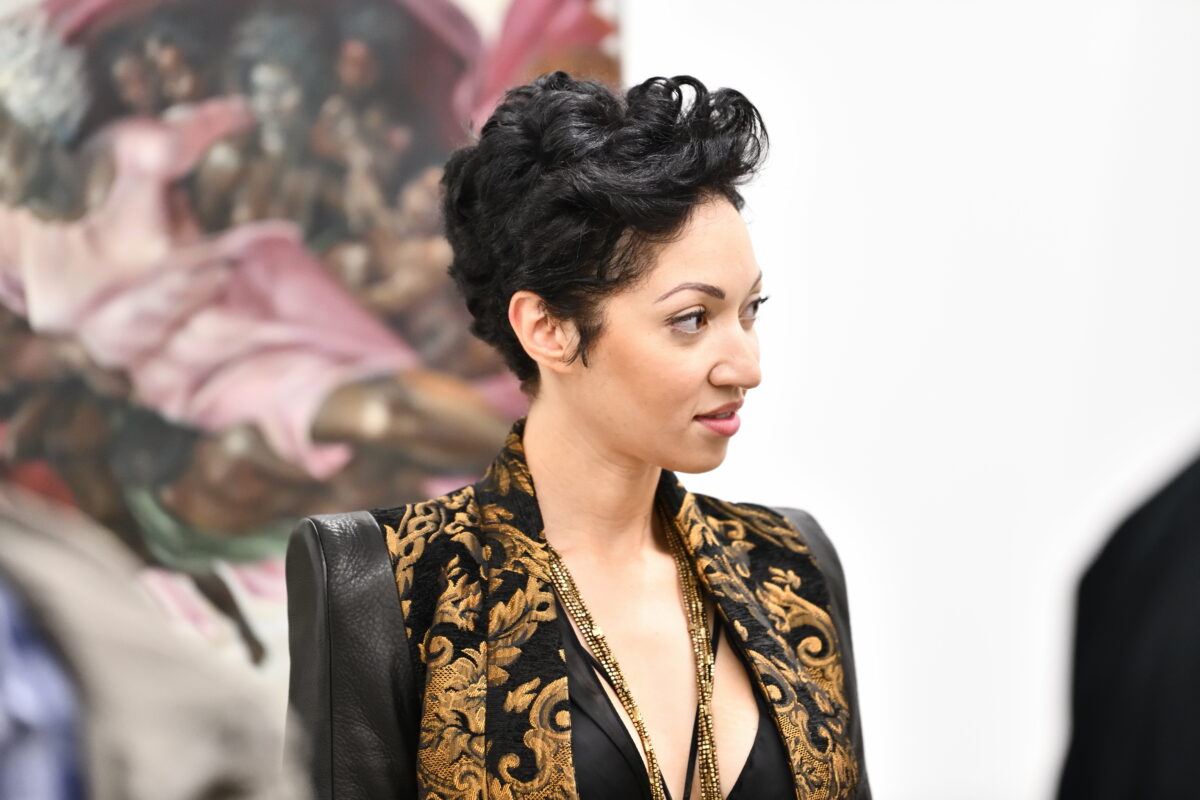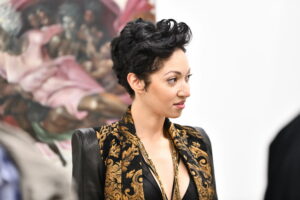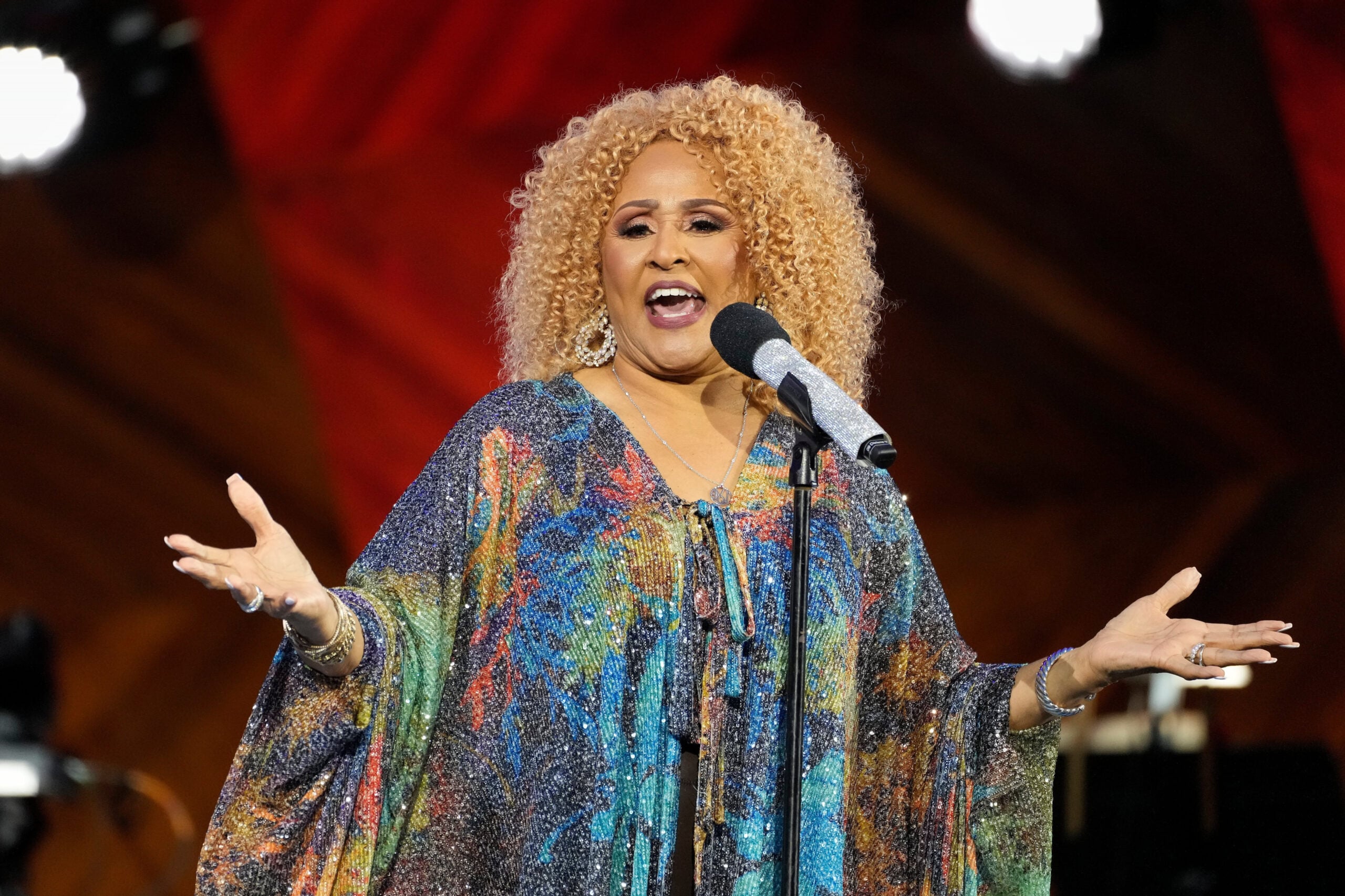
Harmonia Rosales‘s new exhibition at the Spelman College Museum of Fine Art focuses on blending West African religion and faces with classic Renaissance art.
According to CNN, her exhibit comprised 20 pieces centering on returning to one’s identity. For seven years, Rosales’ paintings and sculptures were created in this theme as a way to shift our focus in Western art away from a white-centric model. Instead, she places Black people as the central characters.
The exhibit, “Harmonia Rosales: Master Narrative,” includes the deities and stories from the West African religious tradition of Yoruba.
According to Brittanica, the faith stems from Nigeria and part of other nations in the surrounding region. Its supreme, or most important state of existence, is found with Olódùmaré, which created humankind. Subsequent deities, called Orishas, have designated rulings while being heavily intertwined with the natural environment.
In her work, Rosales has featured certain Orishas that tie into the artistic work’s theme. For example, her take on depicting the Virgin Mary in Lady of Regla instead showcases Orisha Yemaya, the mother of the world. Orisha worship also went to Cuba and Brazil through the TransAtlantic Slave Trade and is now practiced throughout the diaspora.
Rosales’ decision to build upon this tradition comes from the restriction to practice this religion placed upon enslaved Africans, being forced to abide by white slaveowners’ beliefs, leaving their original culture and spiritual guidelines to the margins.
As for her motive behind incorporating this faith in her work, she yearns to give it wider attention. She believes blending it in the artwork within Greco-Roman and Christian history will grant that.
“Because it’s what’s been mainstreamed. I’m trying to educate the masses on a religion that has been hidden for quite some time,” Rosales said. “I want to make it very linear, understandable, and digestible, so then we can dive deeper. I’m taking the express route of teaching people who they are. The only way to do that is by reimagining certain famous images.”
She has maintained some critical techniques from this artistic foundation, especially in her depictions of the Black figures that are the stars in her works. She continues to utilize the old ways, using thin coats so that their skin appears so natural that a viewer would almost dare to reach out and touch them.
“Creation of God” invokes a new interpretation of Michelangelo’s mural on the Sistine Chapel’s ceiling, which includes Orishas instead of Biblical characters, to expand her vision for the collection further. Her work is unintentionally but inescapably political, especially amid the national fight to ensure Black history is told, and tells a story of empowerment that the artist hopes all her people may look to for upliftment.
The exhibit continues to be available for viewing at the Atlanta-based gallery until December 2.
RELATED CONTENT: 5 Spelman College Students Awarded $10K Scholarships Through Spotify’s NextGen Program





